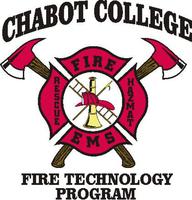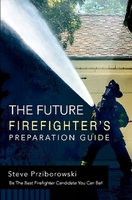Frequently Asked Questions (FAQ):
Q - What does a Firefighter do?
A - Firefighters protect communities against the loss of life, injury, and destruction of property by fire. Firefighters work as a team with each person assigned to a special job. They respond to various emergency and non-emergency responses such as fire alarms, different types of fires, public service requests, hazardous materials releases, vehicle accidents, with the overwhelming majority of responses being emergency medical service (EMS) in nature. Some of the duties include locating the source of a fire, connecting hose lines and nozzles, rendering emergency medical care, operating power tools and hand tools, and placing ladders onto buildings to assist with rescue or fire operations. In order to ensure their equipment works properly, firefighters are also responsible for apparatus, fire station and equipment maintenance.
Q - What does an Emergency Medical Technician (EMT) do?
A - Most EMTs are employed by fire departments or private ambulance companies. Most Firefighters are trained to at least the EMT level, with some to the higher level of Paramedic. An EMT brings expert medical care to victims of illness or injury by stabilizing medical problems and transporting patients to the hospital. At the scene of an accident or in the case of an illness at home, emergency medical care may involve control of bleeding, application of bandages or splints, administration of oxygen, resuscitation of patients, treatment of shock, assistance in childbirth, control of mentally disturbed persons, treatment of poisoning or burn patients, or assistance in evacuation of patients trapped by fire or accidents. Other duties may include communications (oral and written), documentation, emergency vehicle driving and maintenance of apparatus and equipment.
Q - What are the working conditions of a Firefighter?
A - Firefighters work indoors and outdoors. They perform work in physically and mentally challenging situations and for prolonged periods of time under sometimes dangerous conditions. They are required to eat, sleep and work at a fire station while on duty, sometimes for a few days at a time. Hours may vary, but often include being on duty for 24, 48 or even 72 hours straight, and then being off for 24 or more hours. Typical city or county Firefighters average 56 hours per week, while Federal or State Firefighters may work 72 or more hours per week. Firefighters will also be exposed to toxic smoke, gases and fumes, flames, hazardous chemicals, heat, stress and high levels of noise.
Q - What are the working conditions of an EMT or Paramedic?
A - EMTs and Paramedics may work for fire departments, hospitals, private ambulance companies, police departments and in private industry. The majority work on ambulances and for fire department, but some find seasonal work in forest firefighting (CAL FIRE as an example), parks and recreation areas. EMT certification is usually the minimum level of medical care provided by most fire departments.
Q - How much can a Firefighter expect to earn?
A - First, if you're getting into the fire sevice for the wages, or benefits or even working conditions (such as the schedule), please do everyone you will work with and work for a favor and consider another career. Why? While Firefighters can make very decent (if not generous) wages and benefits in various parts of the United States, the wages and benefits can change, sometimes for the better, sometimes not for the better. With retirement costs and health care costs rapidly rising every year, it is getting more challenging for most communities to be able to afford as many Firefighters as they may need or want. The fire service needs people who want to serve their fellow man or woman, serve their community, basically help others and continuously give back to their community, as opposed to someone who is just collecting a paycheck and then going to live in another community hours away.
Earnings can vary depending on the type and size of department, geographic location, and IAFF Union Local Memorandum Of Agreement / Understanding (MOA/MOU). Larger cities usually pay more than midsize or smaller cities, but that can depend on a number of factors. Larger departments can also offer more chances for promotional opportunities and speciality assignments such as fire inspector or fire investigator. Federal and State Firefighters typically make much less than Firefighters working for cities and/or counties. In the San Francisco Bay Area, the salary of a newly hired Firefighter can be up to $100,000 per year, depending on the department, and other factors such as incentive pay for paramedics or EMTs, bilingual speaking ability, hazardous materials pay and/or educational incentives. Additionally, Firefighters typically receive excellent health care and retirement benefits.
Q - What can an EMT or Paramedic working for a private ambulance company earn?
A - EMTs and/or Paramedics working for a private ambulance company can make as low as minimum wage and upwards of $100,000 per year, depending on the geographical location, the company you are working for, as well as overtime opportunities available.
Q - What is the employment outlook for Firefighters?
A - It can vary, depending on a number of factors, such as who you talk to, the geographical location, the overall economy, etc. Most Firefighters tend to stay on the job for 20 to 40 years, so retirements can be hit or miss.
Q - What is the employment outlook for EMTs and Paramedics?
A - There will be a continued need for EMTs and Paramedics because of the overwhelming majority of fire departments across the United States only hire Firefighters who have either EMT or Paramedic certification or licensure. It is too expensive for a fire department to put you through either training program, so fire departments look for candidates with either EMT or Paramedic training.
Q - What personal qualities, qualifications, knowledge, skills and abilities are necessary to be a Firefighter or EMT or Paramedic?
A - Firefighters (including EMTs and Paramedics) need to have excellent health, physical ability, strength, stamina, manual dexterity, and eye-hand-foot coordination. They need the ability to climb, stoop, and reach; have normal color discrimination; and the ability to lift at least 50 pounds. Firefighters need mechanical abilities to operate equipment. They also need the ability to perform well under stress and have a willingness to risk death and/or injury for another person's savable life (Note: savable life; it is not acceptable to risk one's life for property that will be rebuilt or demolished anyway, or someone else's life that is not considered to be savable). They need to demonstrate emotional stability and self-confidence as well as the ability to work with different types of people under situations of extreme duress. Firefighters also need to have excellent oral and written communication skills, and be very proficient at using computers and various forms of technology. High school or college level coursework in English, math, health, geography, chemistry, physical education, computers, auto repair shop, woodworking, and mechanical trades would be very helpful. They must also be able to give and receive verbal and written instructions quickly and clearly, remain calm in emergencies, and maintain a neat, clean and professional appearance. Last but not least, they must be able to use good judgment under stress, have and use common sense, drive an emergency vehicle, avoid endangering themselves or their co-workers, be prepared to be a life-long learner, and avoid inflicting further injury on patients.
Q - How do I get started at Chabot College?
A -
1. Apply for admission as a student. Applications may be picked up in person at the Admissions and Records Office or on the Chabot College website.
2. Visit the latest version of the Chabot College catalog to see the various 2-year degree and Certificate of Achievement options that are available to you. The catalog can be found on the Chabot College website.
3. Decide what degree option you want to pursue (your best bet is to go for the 2-year degree in Fire Technology because it also provides the valuable general education as well it looks better than just getting a Certificate of Achievement).
4. Begin taking classes to work towards your goal.
5. At any point you have any questions, you are encouraged to either meet with a counselor, or the Fire Technology Coordinator, Bob Buell, whose contact information is on the right side of this page.
Q - What are the approximate costs of attending Chabot College?
A - Students must pay enrollment fees each semester and buy books, supplies, uniforms and other necessary items. For current enrollment fees, visit the Chabot College website.





